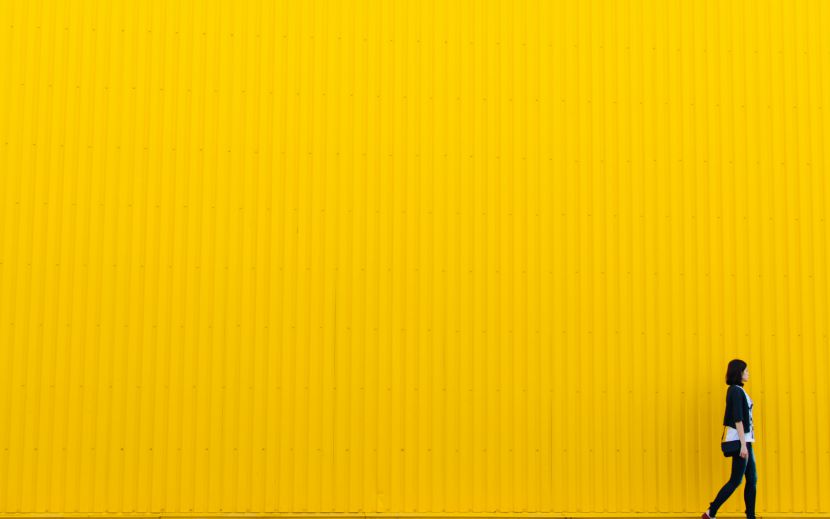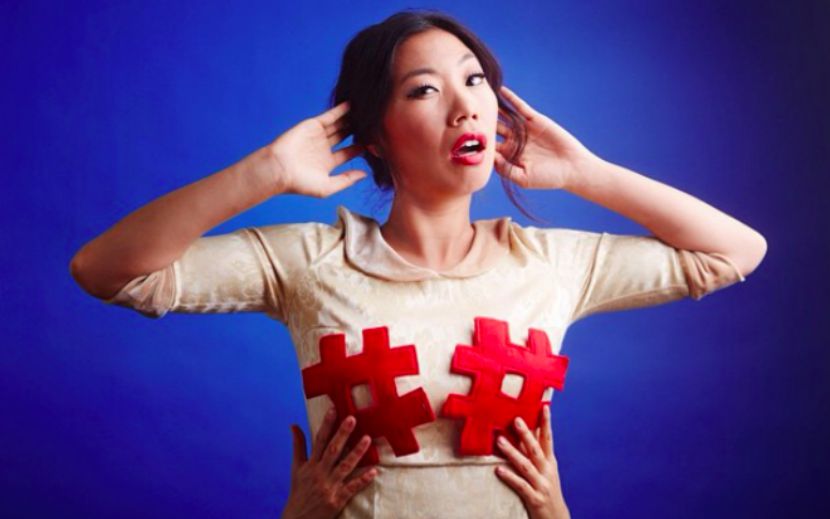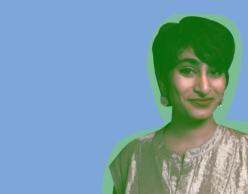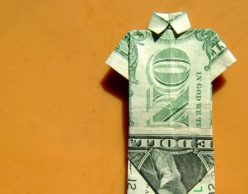Kristina Wong: Asian. Not Mzungu.

She is a performance artist named Kristina Wong. She is a character named Kristina Wong. She is a third-generation Chinese-American Mash-Up named Kristina Wong. But who is she?
Her longest running show, Wong Flew Over the Cuckoo’s Nest, examines depression and secrecy in the Asian-American community — with a narrative focused on a performance artist, named Kristina Wong. But it’s fictional! (She says.) Her newest work, Wong Street Journal, is her reckoning with global poverty, inspired by her travels to Uganda. She sat down with The Mash-Up Americans to talk about her art, her parents, and her guilt. They’re mostly unrelated. Mostly.
So, who is Kristina Wong?
I play a character named Kristina Wong but I’m also me, Kristina Wong. Right now you’re talking to the real me, and also the me who is thinking about the PR version of me. Everybody has several personas. As an artist who has created characters named Kristina Wong, it’s definitely more confusing. I toured Wong Flew Over the Cuckoo’s Nest for so many years that I was becoming the character from my show, which was very difficult. I also have a persona in dating where people just see an Asian woman.
Oh no.
Oh yeah! It gets so bad online. Back in the day the Asian fetish dudes were really obvious and super gross. They were the ones who followed you around and greeted you in Japanese. Now they’ve learned to hide themselves really well. They’re hipsters, they’ve got tattoos, they have their own companies and it’s so confusing. They’re supposed to be creeps! It’s gross when you realize you’re on an assembly line.

When did you first realize that Asian dating was a thing?
In high school. I had the lowest self esteem. My first boyfriend asked me out because he had never dated an Asian girl before and was curious. He was an ass. I wasn’t even allowed to date, so my friends and I would speak in code about boys just in case our parents were listening to our phone calls. This was back when we had land lines and your mom could just pick up and listen in. Asians have learned to fly under the radar.
Can you tell online who has an Asian fetish?
Sometimes. The really obvious ones are when all their photos are of them and an Asian woman. People have written me in Chinese characters. Or Korean characters. And that’s crazy. I’m third generation Chinese-American so I can only read stray characters.
What is your family’s immigration story?
My parents grew up in San Francisco. My grandfather had a butcher shop in the Mission District. I had always assumed the butcher shop was in Chinatown because nobody ever talked about it and isn’t that where all Chinese people start businesses? That’s how little people talk in my family about our past. We don’t romanticize our working class, immigrant roots.
How did you learn about your family history?
I was able to look up some genealogy on Ancestry.com. In the back of my mind I had assumed that that website was for white people. I can’t get into China history on the site, but I was able to see my grandfather’s naturalization papers to the U.S. and his signature and the listing of what might have been his meat store. I showed my mom, and she was like, “Don’t do a show about this.” Why would I do a show about a piece of paper?
Do your parents understand your work?
Asian families excel at fictionalizing and rewriting memories.
They’ve seen it, they’re supportive. I think it’s a matter of them seeing the press and awards and front page coverage and that’s what they need for it to be validated. But the work itself … I don’t think they’re like, yay, we’re being crucified! It was tricky for them. Wong Flew Over the Cuckoo’s Nest is a really difficult show to make and perform and tour. Constantly playing a version of myself meant that I sometimes began to lose track of the actual memories. And for me, that’s what it’s like to experience depression. Families, and Asian families especially, excel at fictionalizing things and rewriting memories. They just show the best trophies or cling to the best news articles, because the truth can be really painful and shameful.
Do you think that secrecy around mental illness is especially a problem in Asian families?
I think it exists in all families. But culturally, Asian Americans are especially prone to it, because of the model minority myth and the idea of saving face. I remember I told my mom once when I saw a shrink, and she was like, “Your employer will find out and you won’t be able to get a job.” And that sends two messages. One, that my mental health is not as important as my ability to make money. Two, that I should hide my problems. It’s hard.
But generally, my parents have been really supportive. I have friends who keep their whole artistic lives a secret because their parents don’t support or understand them at all.
What are you working on now?
My new show is called The Wong Street Journal. I went to Uganda a few years ago. I wanted to do a show on global poverty. I ended up making a rap album with locals while I was there. There was so much there to navigate in terms of my own privilege. In Africa, I’m white – mzungu. I tried to explain that I was Asian to the locals, but it didn’t matter.
Our identities as Mash-Ups is so much about context. Can you tell us about growing up Chinese in San Francisco?
There were so many Chinese people, people whose families had been there for many generations and also an influx of immigrants. I remember white girls being referred to as “Americans” by other Chinese girls, who were using it interchangeably with “white.” Everyone did it. It was a Freudian slip that happened quite often. It was hard to think of Asian faces as American, but it was easy to identify white people as American. Even in the predominantly Chinese schools I went to, there was a sense that the closer you could get to a certain sort of whiteness, or passing as part of the a white majority, the more success and acceptance you could have.
Have you ever been to China?
I did the Love Boat in Taiwan while I was in college, in the summer of ‘99. The official name is The Overseas Chinese Youth Language Training and Study Tour to the Republic of China.
Basically you’re supposed to meet another Chinese person and fall in love, right?
It’s nicknamed the Love Boat because it’s mostly just Chinese-American kids who are free from the shackles of their parents and making out a lot. They drink and party and party and drink. It was totally fun. I had a boyfriend who was Chinese from France. We’re still Facebook friends now. But to me it was like, what are we chasing here?
Have you been back to China since then?
No. It might be weird to people that I went to Africa before I went back to China. I was actually terrified about going to China because I was afraid I would be shamed for not being able to speak the language, or that people wouldn’t be able to grasp that I’m a real person, a Chinese-American, and I already have enough trouble with that in the U.S.
As an Asian American, I am a minority, and I am a marginalized minority, but I’m also among the first of people of color to benefit from white privilege. As an Asian-American woman especially, I am taken as non-threatening. I think about this privilege a lot when I’m trying to navigate these new projects, like Wong Street Journal.
Does that privilege make you feel guilty?
Can I tell you some of the things I’ve done because of guilt?
Toooootally. Can I tell you some of the things I’ve done because of guilt? I’ve broken my sobriety because of guilt. When I was in Uganda, two men I was eating with called me mzungu. I said, no, I’m not white, I’m Asian. They offered me a beer, and I declined, because I’d been sober for two years. And they said I reminded them of an ungrateful white woman they had met before. And so I drank that beer. Another time in Uganda, a man flagged me down to ask me to translate some words in Chinese so he could get a tattoo. If that happened here, if some white person asked me to translate words so they could get a Chinese tattoo, I would go off on them. But there, I translated what I could in my shitty elementary Chinese. I didn’t scold him. I helped him in a way that I wouldn’t help someone here, and that was because of guilt.
I think a lot of my career is probably about guilt. Have I done enough? Did I tour enough? Am I helping anybody with my work? I hope so.
Kristina, we promise: You have.
Need more on dating? Parents? Guilt? You’re not alone!
What Dating Advice Did You Get From Your Immigrant Parents?
Giving Your Parents an Allowance: Yes or Hell No?
Guilt. We Feel It. Turns Out You Do, Too.





